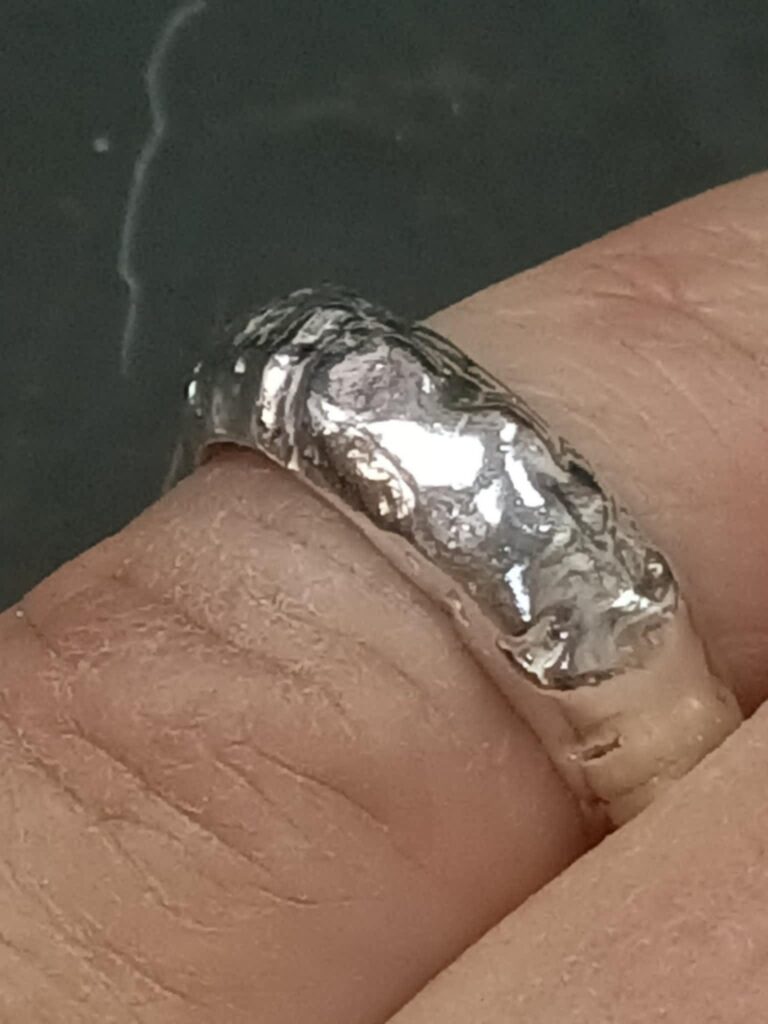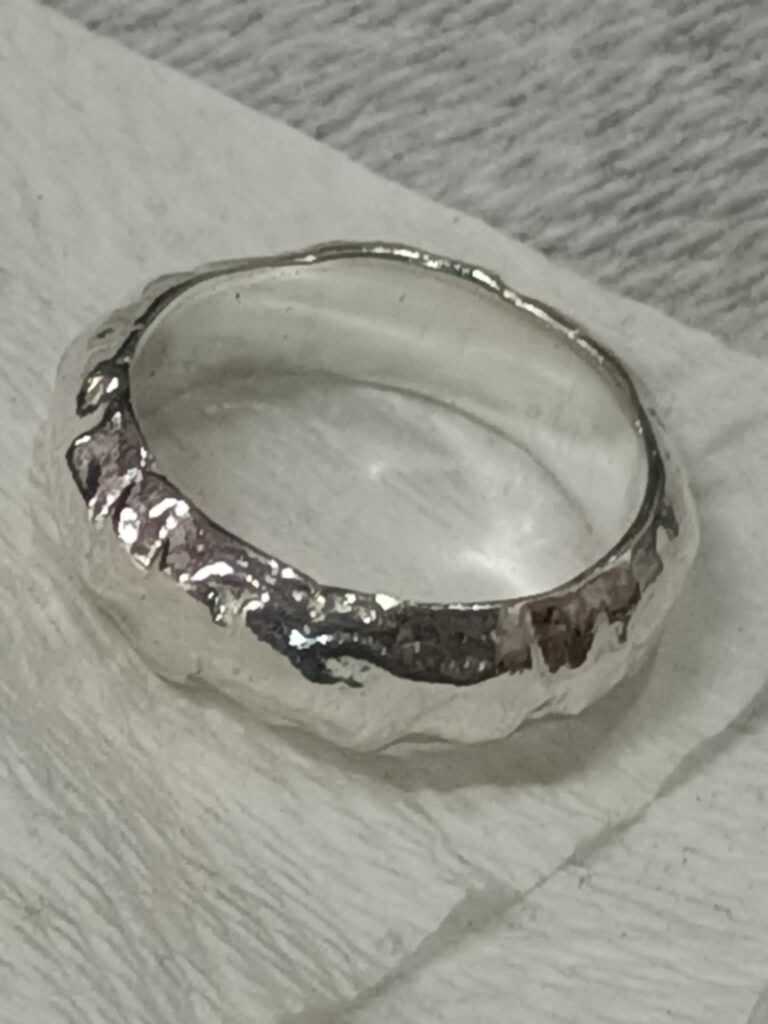


The Cliffside Pine
Cool Bob—Grandmaster artisan and silverworker—lived in quiet harmony. His workshop, carved into the mountainside, overlooked a valley where wildflowers danced with the seasons, and snowmelt carved silver veins through the land. They called him many things—sage, mystic, mountain recluse—but Cool Bob simply thought of himself as a craftsman.
His days passed like the wind over high stone—sometimes howling, sometimes still. Mornings began with pine needle tea, steeped with a sprig of wild mint, sipped slowly beside a window carved into living rock. From there, he watched the sun paint the peaks gold, and the world stir with quiet promise. Birds wheeled above, and far below, elk moved like dreams through the forest.
One crisp morning, as the mist still clung to the peaks, Cool Bob set out on a quiet walk along the cliffs. He moved slowly, reverently—each step deliberate, each breath an act of worship to the mountain itself. He carried no tools, no pack, just the clothes on his back and a small pouch of beeswax in his pocket, as was his custom when wandering. That’s when he saw it—a lone pine, defying gravity, clinging to sheer rock as if it had been placed there by the hand of an ancient god.
It wasn’t just a tree. It was a sentinel.
Suspended in the wind, it hummed with an energy both ancient and knowing, its twisted form speaking of time, endurance, and the will to stand firm against all odds. The roots had split stone. The bark was laced with lichen the color of glacier ice, and needles sang a strange music in the breeze. It seemed impossibly alive—not just surviving, but thriving, with a fierce, quiet pride. Cool Bob stood frozen for a long while, simply listening.
Intrigued, he secured his rope and repelled down the cliffside. The stone was warm beneath his hands, the wind tugging at his frame as he descended toward the pine. A crow circled overhead, watching. Somewhere deep within, he felt the old call rise again—the call of a piece not yet born, a creation waiting to find its shape through him.
When he reached it, he traced his fingers along its bark—weathered, wise, unyielding. The tree did not resist his touch. It welcomed him. He closed his eyes, grounding himself in its presence, letting the mountain’s breath flow through him. A single twig loosened from the branch and landed in his palm, as if the tree itself had chosen to give him a gift.
He bowed in gratitude.
Back in his studio, he lit a pine fire and placed the twig on his worktable—a slab of old juniper burnished smooth from decades of use. He crushed sage and scattered it around the perimeter. This was no ordinary casting. This was a ritual.
For a piece like this, Bob turned to a material nearly as rare as the moment itself—Moonlight Silver, an alloy purer than sterling, forged not by man but by the mountain’s chaotic will, delivered through its messengers: the Magpies. Not birds, not quite spirits either—these were ancient intelligences clothed in wings and shimmer, drawn to Bob’s worktable when the air turned strange and the veil between wild things thinned.
No one else could summon them. No one else had tried.
The Magpies would leave the silver in his forge unannounced, still warm, as though caught mid-dream. How they made it—whether through alchemy, song, or accident—Cool Bob never asked. That was part of the pact: don’t ask, don’t explain, just make.
The pine twig was pressed gently into beeswax—collected by hand from a wild hive high in the canyon—preserving its every line and imperfection. Then came the mold, the pour, the fire. Hours passed, then days. He spoke to the piece as it cooled, whispering blessings in a language that had no written form.
The texture remained untouched—every ridge and knot preserved, a testament to the tree’s resilience. When he removed the final casting, it gleamed like moonlight caught in bark. Cool Bob ran his fingers along the edge, satisfied. It was exactly as it should be.
There was no need to adorn it, no need to channel anything artificial into its form. The strength was already there—from the ancient pine, from the cliff face, from the wind that had shaped it. The power did not come from magic, nor from metal—it came from remembering. The pine had long stood as a symbol of peace, endurance, and wild wisdom, and now, its presence had been captured in silver. Not tamed—never tamed—but honored.
The one who wore it would not seek power.
They would remember their own.
Because the mountain gives nothing away—but it reminds.
Cool Bob placed the silver pine ring on a smooth stone shelf, beneath a narrow shaft of skylight. He left no tag, no title—just a faint inscription:
“Cliffside Pine — stand as you are.”
And then he waited. For the one who knew the sound of needles in wind.
For the one who had once stood alone and unmoved in the face of the storm.
For the one who carried the mountain’s silence in their chest, and the pine’s song in their blood.